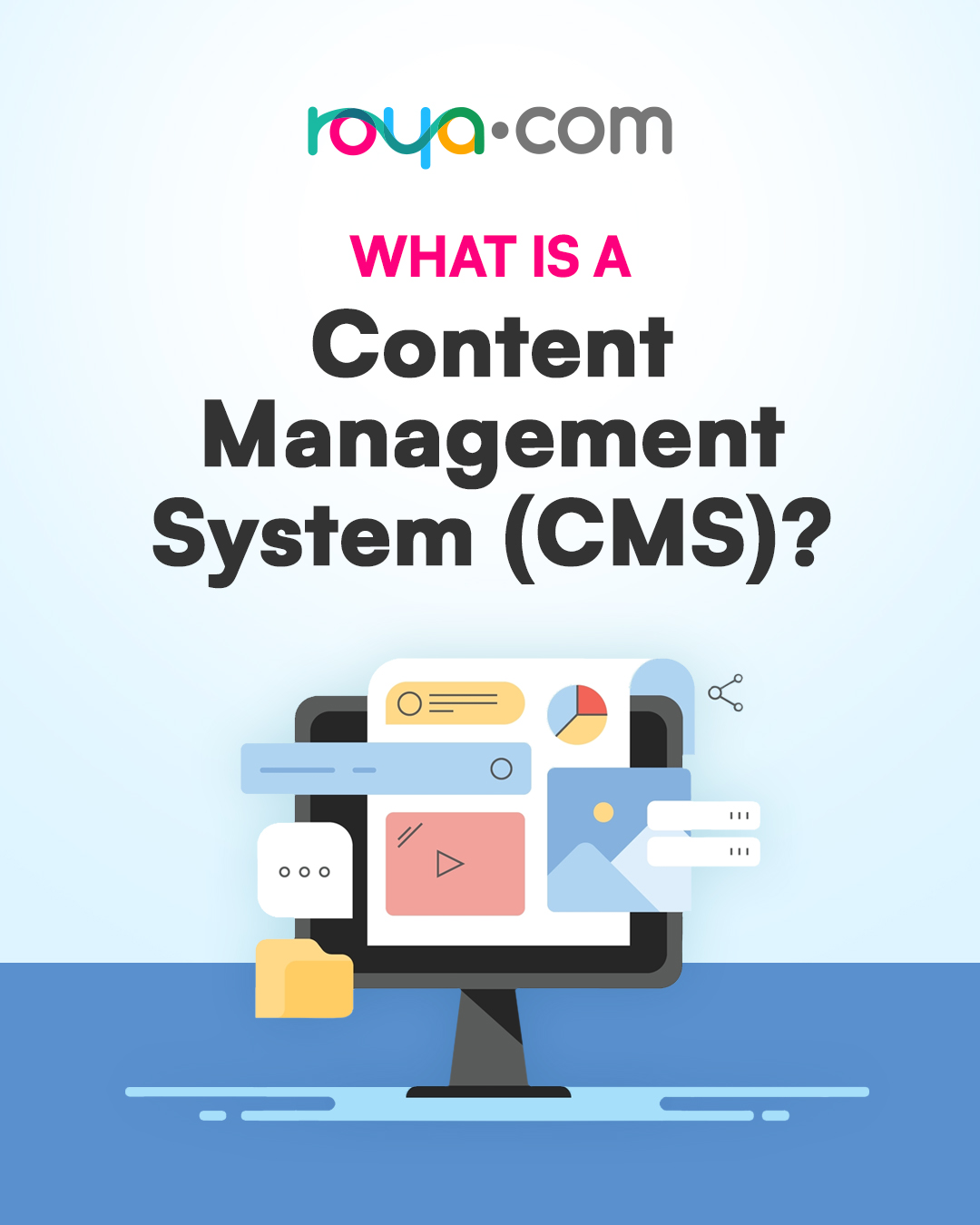
Building a high-performing website doesn’t need to be intimidating, even if you’re not a tech expert. A content management system (CMS) makes it simple to create, manage, and update your website’s content without needing coding skills. Here’s how it works:
What Is a Content Management System (CMS)?
A content management system (CMS) is a versatile tool that enables businesses to manage and update website content without requiring technical skills. Think of it as an easy-to-use platform that gives you control over your website’s content, so you don’t have to rely on a developer for every update.
How Does a Content Management System Work?
Imagine you have a website that needs updating, such as adding a new doctor to your practice or publishing a fresh blog post. Traditionally, you’d have to contact your website provider, explain what you want to change, and wait for them to make the update. A CMS allows you to make these changes without relying on a developer.
With a CMS, you can log in, edit your website’s pages (i.e., add new text, images, or links), and then hit “publish” to update your site. No technical jargon, no waiting around. It’s all done through a user-friendly dashboard, where everything is just a few clicks away.
A CMS also simplifies data asset management, which means keeping all your images, logos, and marketing materials organized in one place. This allows you to easily maintain a consistent and professional brand across your website and other marketing channels.

What Are the Features of a CMS?
A CMS is an essential tool offering features to help you manage and optimize your website and content effectively. Whether you’re updating web content, optimizing for search engines, or implementing a new marketing campaign, a CMS is the backbone that keeps everything running smoothly.
Website Management
Very few coding skills are required to update your website, making it easy for your team to manage content and keep your site current. With a CMS, you can quickly add or update website pages, blog posts, and more.
Whether you want to add a new service page or publish a blog with patient care tips, it's easy to do on your own. This flexibility helps you keep your website fresh and relevant, making management a breeze.
Branding
Additionally, a CMS helps you maintain consistency in branding and messaging, ensuring your website aligns with your marketing goals. CMS platforms provide flexible templates and design options, allowing you to create a website that reflects your practice’s unique branding.
Search Engine Optimization (SEO)
Built-in SEO tools help your website rank higher on Google, making it easier for potential patients to find you online.
Analytics and Reporting Tools
A solid CMS also comes with built-in analytics tools that show you how your website is performing. You’ll see how many visitors visit your site, which pages they visited, and how they interact with your content. This data helps you make smarter decisions about your content strategy and gives insight into what resonates with your audience.
Why Is a CMS Important for Healthcare Practices?
A CMS is essential for healthcare practices because it simplifies managing and improving your online presence. With the right CMS, you can easily update your website, from publishing blog posts that boost SEO to creating service pages that educate patients and drive engagement.
Integration Capabilities
A key benefit of a CMS is its ability to integrate with your practice’s other digital tools, such as appointment scheduling, patient communications, and payment systems. Choosing a CMS that integrates well with the software you’re already using helps make your business operations more efficient, so your website doesn’t just look good—it works smarter, too.
These integrations streamline your internal processes, allowing your staff to focus on patient care rather than managing multiple platforms. Think about it—your CMS can sync with your email marketing platform, CRM system, or appointment scheduling software, so everything works together.
Scalable Functionality for Growing Practices
As your practice grows, you can easily add new pages, features, or integrations to your website without rebuilding it from scratch. For larger practices or those with multiple locations, some CMS platforms offer features that let you manage content across several sites or departments from one place, keeping everything organized as your business expands.
Security & Performance
Regular updates ensure your website stays secure and performs optimally. CMS platforms often include SSL certificates, secure logins, and other features to protect patient data.
Verify Your CMS Meets HIPAA Security Standards
When choosing a CMS for your healthcare practice, you'll want to ensure it meets HIPAA security standards to protect patient data. Not all CMS platforms come with the security features you need, so it’s a good idea to double-check that your platform is up to par.
Look for a CMS offering built-in encryption, secure logins, and regular updates to keep patient information safe. Meeting HIPAA security standards isn’t just a requirement—it’s key to protecting your patients' data.

What Are Some Examples of a CMS?
Canvas® CMS: Designed specifically for healthcare, Canvas® CMS comes with built-in security features to meet HIPAA standards, offering a scalable and easy-to-use platform for healthcare providers to protect patient data while managing their online presence.
WordPress: While widely used, WordPress requires additional plugins and third-party tools to meet HIPAA standards. Extra steps are needed to ensure it’s fully secure and compliant.
Joomla: Flexible but requiring technical expertise, Joomla can be configured to meet HIPAA compliance, though it may not be as user-friendly for non-technical users.
Adobe Commerce: Primarily for e-commerce, Adobe Commerce doesn’t offer healthcare-specific security features by default, so additional integrations are necessary to ensure HIPAA compliance.
Drupal: Drupal provides flexibility and scalability but, as an open-source platform, needs extra configurations to meet HIPAA security standards and protect patient data.
The Role of Templates in CMS
Many CMS platforms offer templates to help you build your website. These pre-designed layouts make it simple to build your site without starting from scratch. The downside? Templates can limit your creativity and flexibility, which might result in a site that looks similar to others.
At Roya.com, we don’t use templates. Instead, we offer a fully customizable, flexible platform that gives you more control over your website’s design and functionality. This approach ensures your website reflects your healthcare practice and stands out from the competition. Whether updating patient pages or adding blog posts, you'll have the flexibility to make your website your own, without limitations.
How Does a CMS Compare to a CRM?
While a CMS helps you manage website content, a CRM (Customer Relationship Management) system focuses on managing patient relationships. CRMs are used for tracking patient information, appointment scheduling, and marketing communications.
To learn more about how CMS and CRM platforms differ, check out our detailed guide on CMS vs CRM for Healthcare.
Key Benefits of a CMS for Healthcare Practices
Maximize Your Content Strategy
A CMS isn’t just about managing your content—it’s also a great way to boost your content strategy. It helps optimize your website for search engines like Google, making it easier for potential patients to find you. By keeping your content engaging and SEO-friendly, a CMS ensures your site is set up to rank better. Whether you're blogging, communicating with patients, or managing social media, it all comes together to build a stronger online presence.
How a CMS Supports Your Practice’s Goals
You’ll want a CMS to help your healthcare practice maintain a professional and informative online presence while providing patients with helpful resources. With a CMS, you can easily create and update content that supports your practice’s goals, including:
Calls to Action (CTAs): Boost patient engagement and conversions with well-placed CTAs throughout your website. Whether booking an appointment, signing up for a newsletter, or requesting more info, CTAs guide visitors and turn leads into loyal patients.
Patient Education Pages: Offering detailed information about treatments, procedures, and services helps empower patients and enhances your credibility, building trust and confidence in your practice.
Blog Posts: Regularly updated blog content keeps your website fresh and relevant, improving SEO and attracting organic traffic. It also positions your practice as an authority in your field, offering value to current and potential patients.

What Is the Best CMS Platform?
When choosing a CMS platform for your healthcare practice, you'll want to select one that supports your long-term growth. If you're wondering which platform stands out, Canvas® CMS offers a variety of features tailored specifically to healthcare professionals.
Canvas® CMS comes with:
Responsive Design Control: Manage how your site looks on all devices, ensuring a seamless experience for your patients.
Google AMP Support: Ensure faster page loading for mobile users, improving user experience and SEO.
Built-in SEO Tools: Optimize content directly from the platform to enhance your search engine rankings. Choosing the right CMS platform for your healthcare practice can be challenging.
From responsive design to built-in SEO tools, Canvas® CMS provides everything you need to create a website that performs well and grows with your practice.
Why Canvas® CMS Is Ideal for Healthcare Practices
A powerful, secure, and easy-to-use CMS is exactly what your healthcare practice needs to thrive online—and Canvas® CMS delivers just that. Tailored specifically for healthcare, it offers unmatched flexibility, full HIPAA compliance, and seamless integration with the tools you need to manage your digital presence effectively.
From managing patient information to publishing educational resources and appointment scheduling, Canvas® CMS simplifies the process, giving you full control over your website without needing advanced tech skills. Most importantly, it's built with security at the forefront, so you can focus on patient care while your website works smarter behind the scenes.
Ready to see how Canvas® CMS can transform your practice’s online presence? Book a demo today and discover how easy it can be to create a secure, professional, high-performing website designed specifically for healthcare practices.












